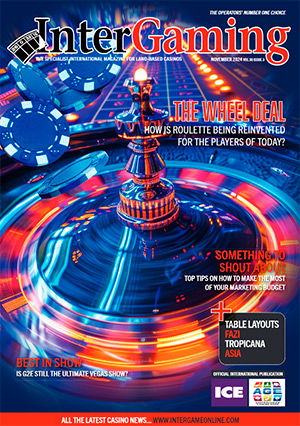New Wire Act interpretation doesn't apply to lotteries, DOJ says

The DOJ made the argument in a reply brief Monday concerning two cases in which the New Hampshire Lottery Commission and lottery vendor NeoPollard Interactive LLC are challenging the 2018 interpretation of the 1961 Wire Act in New Hampshire federal court.
The DOJ has argued the opinion doesn't apply to lotteries, Law360 reports.
The Wire Act prohibits using wire communications to transmit foreign or interstate bets, information assisting in placing bets, and transmissions that allow the recipient to receive money or credit from those bets. In support of its motion to dismiss the suits, the DOJ argued that the 2018 opinion did not address whether or not lotteries are subject to the act's prohibitions.
Therefore, the two organizations do not have any expectation of prosecution and have no standing to sue, the DOJ contended, adding that if the agency later opines that the Wire Act does apply to lotteries, they can pursue their claims at that time.
The DOJ's memorandum included a March 8 letter from Deputy Attorney General Rod Rosenstein instructing DOJ attorneys not to prosecute lotteries and their vendors through the Wire Act until or unless the agency determines it does apply.
In January, the DOJ released a November opinion that reversed its previous stance on the Wire Act from 2011. In 2011, after a question arose about how the Wire Act interacted with the Unlawful Internet Gambling Enforcement Act regarding lottery transactions, the DOJ found that the Wire Act only applied to sports-related gambling.
The 2018 opinion, however, found that only one of the act's prohibitions is limited to sports gambling, while the others apply more broadly.
When the 2018 opinion was made public, several legal experts said that lotteries would be among the most vulnerable stakeholders.
The DOJ also urged the New Hampshire federal court to reject the NH Lottery Commission's and NeoPollard’s arguments about the intent of the legislators who penned the act, saying that the plain-text reading makes it unnecessary, and that the Senate at the time had the opportunity to make the act strictly about sports betting but did not make it so.
"For plaintiffs to avoid a textual reading of the Wire Act, however, it does not suffice for them to show that Congress wrote an imperfect statute," the DOJ wrote. "They must show that Congress wrote an absurd one."
Two weeks ago, a convenience store trade association and an anti-internet gambling advocacy group jumped into the case on the DOJ’s side, echoing the agency's arguments that the plain text of the Wire Act shows it applies to more than just sports betting.
Matthew D. McGill of Gibson Dunn & Crutcher LLP, representing NeoPollard, said the DOJ's memo shows that the agency considers the state lotteries as "felonies in progress."
"Desperate to avoid judicial review of its radical reinterpretation of the Wire Act, DOJ now is backtracking from the clear import of the reversal of position that it supposedly had so carefully considered," McGill told Law360 in an email Tuesday. "DOJ’s eleventh-hour statement that it may — or may not — further revise its interpretation of the Wire Act only underscores the arbitrariness of the reversal of DOJ’s long-held position that the Wire Act addresses only sports betting activities."
















































